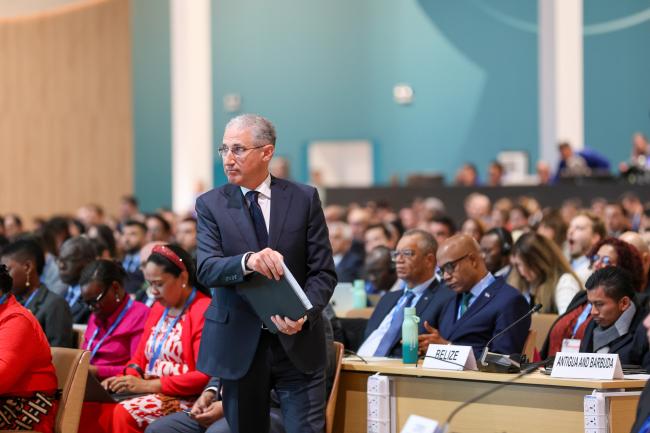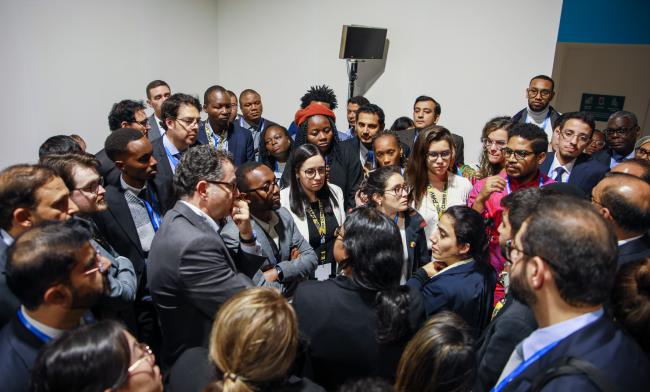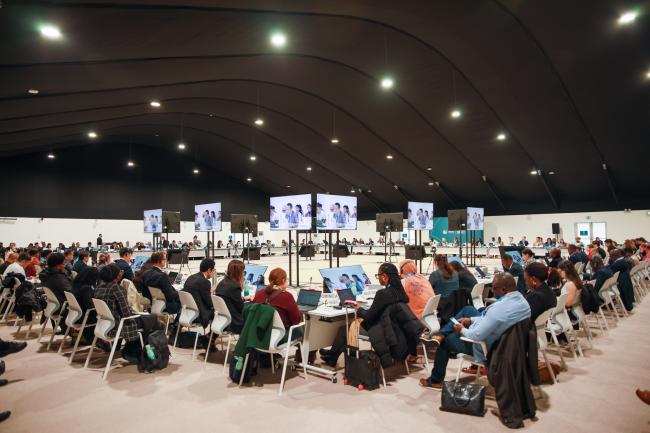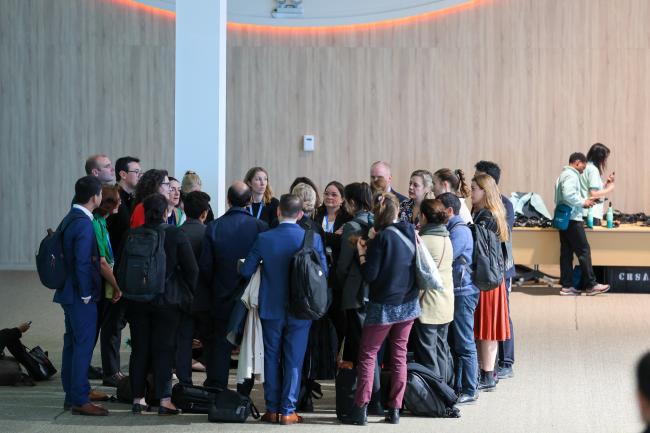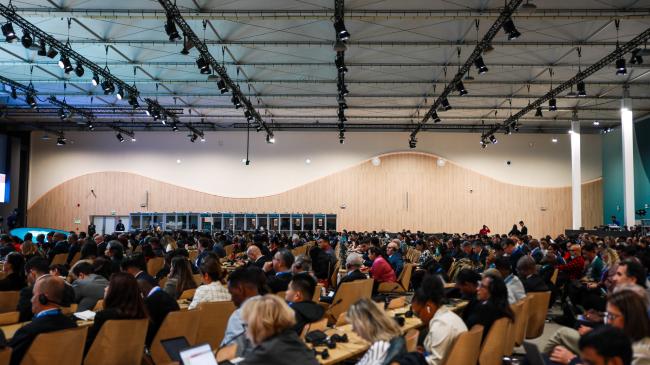Although it is only the third day of the 29th session of the Conference of the Parties (COP 29) to the UN Framework Convention on Climate Change (UNFCCC), delegates are already starting to lose track of time. They spend their days in windowless rooms, negotiating from morning into the night, with little time to coordinate… or rest.
Want to dig deeper into today's talks? Read the full Earth Negotiations Bulletin daily report.
Finance negotiators geared up for another round of back-to-back meetings. Unsurprisingly, there was a divergence of views on how much guidance to give the Board to the new Loss and Damage Fund after its first year. All parties lauded the swift progress achieved since the decision to establish the Fund, but developing countries are keen to provide further guidance, especially regarding future resource mobilization plans.
The day’s negotiations also touched upon, among others:
- finance to address developing countries’ technology needs;
- the role of the Warsaw International Mechanism in the evolving institutional landscape on loss and damage;
- how to capture the notion of “transformational” adaptation; and
- the design of registries to keep track of cooperative approaches under the Paris Agreement.
In other parts of the venue, the high-level segment continued. Among others:
- Prime Minister Giorgia Meloni, Italy, called for a balanced energy mix and technology neutrality, pointing to not only renewable energy but also gas, biofuels, hydrogen, carbon capture and storage, and–in the future–nuclear fusion;
- John Podesta, Senior Advisor to the US President for International Climate Policy, projected that the private sector investment made possible by the Inflation Reduction Act will ensure that the US economy will continue decarbonizing for years to come; and
- Prime Minister Gaston Browne, Antigua and Barbuda, pointed to the International Court of Justice’s consideration of States’ obligations in respect of climate change, underscoring that international law will be the pathway to justice.
In the evening, the few delegates present in plenary heard parties and observer constituencies’ expectations towards progress in Baku. These statements were initially meant to be delivered during the opening plenary on Monday, but were delayed due to the late adoption of the meeting agendas.
To receive free coverage of global environmental events delivered to your inbox, subscribe to the ENB Update newsletter.
All ENB photos are free to use with attribution. For the 2024 UN Climate Change Conference Baku, please use: Photo by IISD/ENB | Mike Muzurakis
High-level Segment for Heads of State and Government
Plenary
High-Level Meeting on Resourcing the Energy Transition with Justice and Equity
Leaders’ Summit of the Small Islands Developing States on Climate Change
Contact Groups and Informal Consultations

From L-R: Perumal Arumugam, UNFCCC Secretariat; Co-Facilitators Maria AlJishi, Saudi Arabia, and Peer Stiansen, Norway; and Phillip Eyre, UNFCCC Secretariat

Informal consultations on the Warsaw International Mechanism for Loss and Damage Co-Facilitators Pasha Carruthers, Cook Islands, and Farhan Akhtar, US

